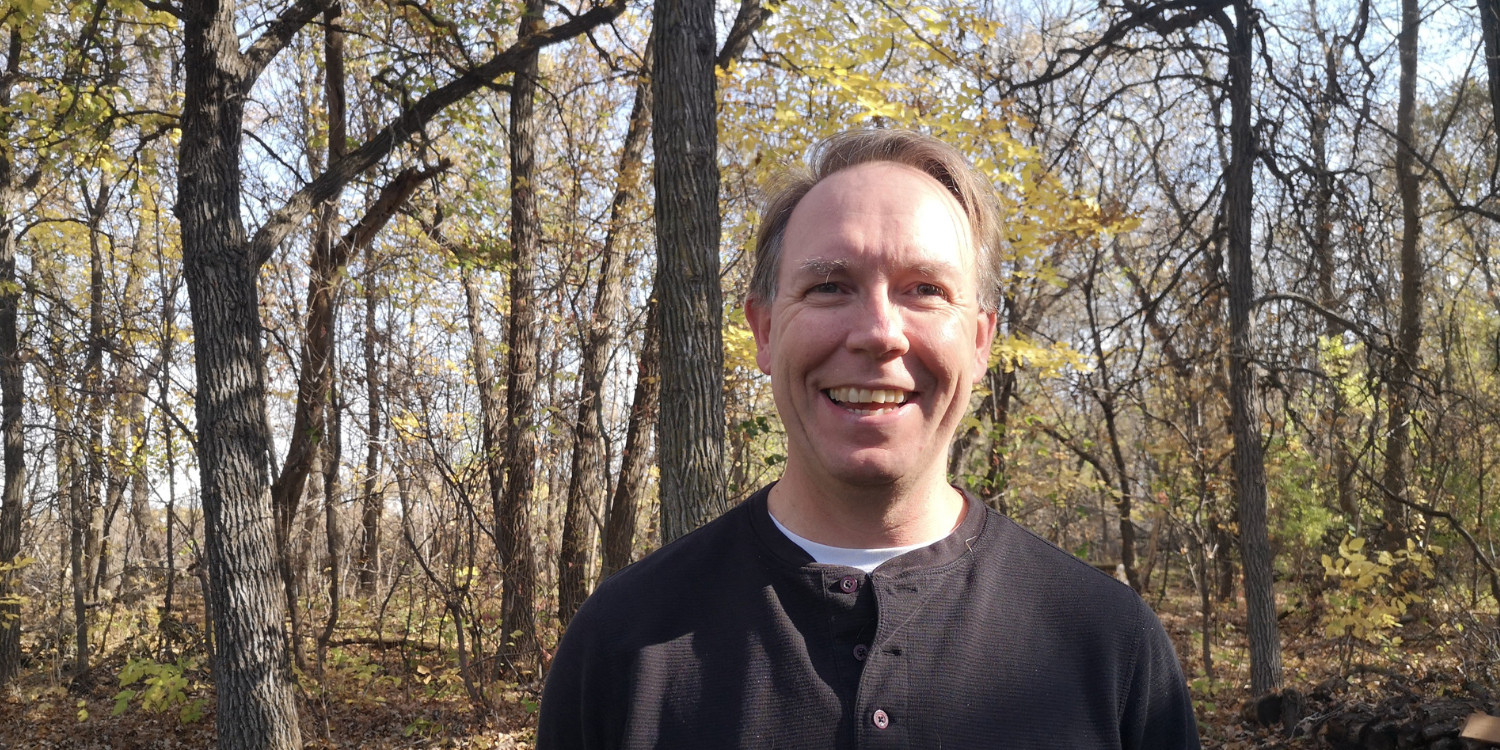Winnipeg high school teacher Mark Glor is a Social Studies veteran, with a passion for engaging students in democracy in meaningful ways.
In his 30 years in the classroom, Glor has taught a wide range of Humanities courses to students in grades 7 to 12. Currently he is teaching Canadian History, American History, Global Issues, Western Civilization and Cinema as a Witness to Modern History, which looks at the 20th century through film.
The subject matter can be intense — a typical workday may see him engaging students on topics ranging from facism, to human trafficking, to residential schools — but there is value in having these discussions, Glor says. “It’s complex topics, but they lead you to the opportunity to be able to talk about things in Canada, and how to go forward in the world.”
He has been involved with CIVIX since the 2004 federal election, and continues to run Student Vote while mentoring other teachers. Glor has long acted as a trusted CIVIX advisor, consulting on the development of resources.
No matter which subject he is teaching, he strives to engage students as citizens. He believes strongly in a model of democratic citizenship that sees voting as the most basic of our responsibilities.
On trips to the Manitoba legislature, Glor reminds his students that the building is not an ivory tower, emphasizing that a democracy belongs to its citizens, who need the skills and attitudes to participate effectively.
“Your elected people aren’t in charge. You place them in charge, and they need to be responsive to you,” he says. “The only way they will know what you care about is if you tell them. Citizenship is understanding that we’re responsible for these decisions.”
If students believe they're part of the decision-making process, if they're not just sitting in chairs with someone hovering over them, it sets the stage for participating in greater society.
For the past two decades Glor has been teaching at Linden Christian School, an independent K-12 school in Winnipeg. It started in 1987 with 33 students and has since grown to more than 1,000. Even at this size, the school feels like a community, he says, and as a grade 10 to 12 teacher he appreciates seeing the same students each year and following their progress.
Part of Glor’s commitment to democracy education involves modelling it in the classroom, so he frequently gives students in his class the opportunity to vote on topics related to the subjects being taught and preferences for learning activities.
“If students believe they’re part of the decision-making process, if they’re not just sitting in chairs with someone hovering over them, it sets the stage for participating in greater society,” he says. “When kids get passionate about things, it’s pretty incredible.”
Glor strives to encourage action, and by grade 12, the curriculum has students doing major action-based projects. He recalls two students became concerned about Canada selling weapons to Saudi Arabia, to be used in Yemen. “I showed them how to do an official petition, and they ran with it,” he says. Other students have done projects related to homelessness and mental health.
Political polarization and heated rhetoric are concerning to Glor, who strives to create a classroom environment where a range of views can be shared and discussed.
“My students always want to watch Question Period, so I explain to them that’s not where democracy starts,” he says. “Democracy is these MLAs or MPs and their committee rooms. They don’t yell at each other in those places. They talk things through. But where we are now, as a society is, people are thinking democracy is about who screams the loudest.”
Democracy is actually about listening, says Glor, and “supporting the government, whatever it is, at the end of the day.”
When social challenges seem discouraging, he likes to remind students of the history of social change. “Over time, an unpopular minority can become the majority. Like, women’s rights were not supported by the majority of people at the beginning,” he says. “So if I can leave them with anything, I can leave them with that hope, right?”
At a Glance
Name: Mark Glor
Location: Winnipeg, Manitoba
Grades Taught: 10-12
Subjects Taught: History, Global Issues
Years Teaching: 30
Years Involved with CIVIX: 19
CIVIX programs used: Student Vote, Student Budget Consultation, Rep Day, CTRL-F
Key Motivation: To have students become engaged democratic citizens who are fully prepared to make sense of the world they live in, and look to influence through rational dialogue, debate, and change where necessary. Living in a liberal democracy necessitates people who are well informed and are active to bring about the public good. To do this fully, people need to understand the institutions of democracy: electoral process, freedom of speech, and the rights of their fellow citizens.
